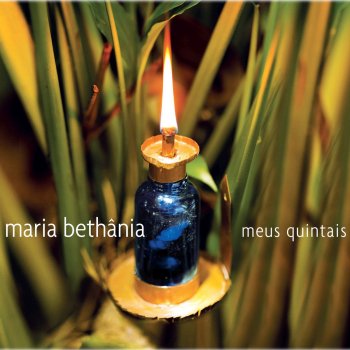Uma Iara / Uma Perigosa Yara - Maria Bethâniatraduction en anglais
A
Iara,
a
que
dorme
Yara,
the
one
who
sleeps
Na
vitória
régia
On
a
lily
pad
Ai
daquele
que
cái
na
tragédia
Woe
to
the
one
who
falls
into
the
tragedy
Da
nudeza
da
sua
voz
Of
the
nakedness
of
her
voice
Iara,
a
que
canta
a
sitéria
Yara,
who
sings
the
lute
Ai
daquele
que
cai
na
tragédia
Woe
to
the
one
who
falls
into
the
tragedy
Da
nudeza
do
seu
véu
Of
the
nakedness
of
her
veil
É
preciso
manter
a
proa
It
is
necessary
to
keep
the
bow
Da
margem
que
incerra
Of
the
shore
that
separates
Se
ele
é
livre
ou
se
é
dela
Whether
he
is
free
or
whether
he
is
hers
A
Iara,
a
que
canta
a
que
chora
Yara,
the
one
who
sings
and
cries
Ao
cair
de
todas
as
tarde
a
Iara
surge
de
dentro
das
águas
As
the
afternoon
ends,
Yara
emerges
from
the
depths
of
the
waters
Magnifica
com
flores
enfeita
os
cabelos
negros,
no
mês
de
maio
Magnificent
with
flowers
adorning
her
dark
hair,
in
the
month
of
May
Ela
aparece
ao
pôr
do
sol,
e
a
medida
que
Iara
canta
She
appears
at
sunset,
and
as
Yara
sings
Mais
atraídos
ficam
os
moços
The
young
men
become
more
and
more
captivated
Houve
um
dia
um
Tapuia
sonhador
e
arrojado,
estava
pescando
There
was
once
a
dreamy
and
daring
Tapuya,
who
was
fishing
E
esqueceu-se
que
o
dias
estava
acabando
e
as
águas
já
se
amansavam
And
he
forgot
that
the
days
were
ending
and
the
waters
were
already
calming
down
"Acho
que
estou
tendo
uma
ilusão",
pensou
"I
think
I'm
having
an
illusion,"
he
thought
A
morena
Iara
de
olhos
pretos
e
faiscantes
erguera-se
das
águas
The
dark-haired
Yara
with
black
and
sparkling
eyes
had
risen
from
the
waters
O
Tapuia
teve
medo
mas
do
que
adiantava
fugir,
se
o
feitiço
da
flor
das
águas
já
o
inovelara
todo
The
Tapuya
was
afraid,
but
what
was
the
use
of
running
away,
if
the
spell
of
the
water
flower
had
already
ensnared
him?
O
Tapuia
sofria
de
saudade
e
Iara
confiante
no
seu
encanto
esperava
The
Tapuya
suffered
from
longing
and
Yara,
confident
in
her
charm,
waited
Nesse
mês
de
florido
maio
o
índio
entrou
de
canoa
no
rio,
o
coração
tremulo
In
that
month
of
flowery
May,
the
Indian
entered
the
river
in
a
canoe,
his
heart
trembling
A
Iara
veio
vindo
de
vagar
abriu
os
lábios
úmidos
e
cantou
suave
a
sua
vitória
Yara
came
slowly,
parted
her
moist
lips
and
sang
softly
her
victory
Houve
festa
no
profundo
das
águas
e
sempre
a
tardinha
aparecia
a
morena
das
águas
a
se
enfeitar
com
rosas
e
jasmins
There
was
a
festival
in
the
depths
of
the
waters,
and
in
the
early
evening
the
dark-haired
woman
of
the
waters
would
appear,
adorning
herself
with
roses
and
jasmines
Porque
um
só
noivo
não
lhe
bastava
Because
a
single
suitor
was
not
enough
for
her
A
Iara,
a
que
canta,
a
que
chora
Yara,
the
one
who
sings,
the
one
who
cries
Évaluez la traduction

Attention! N'hésitez pas à laisser des commentaires.